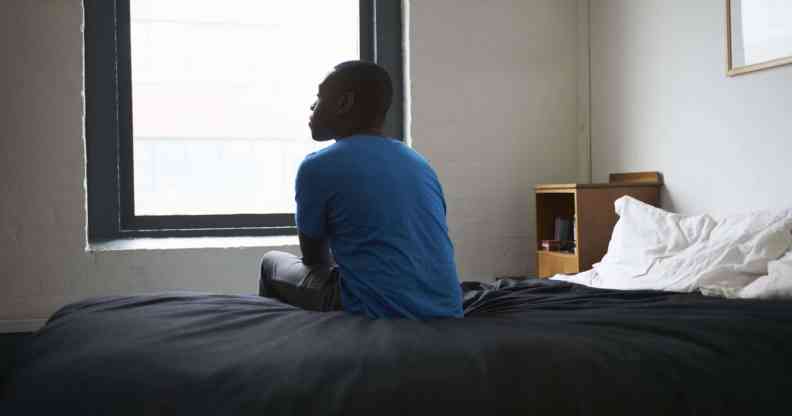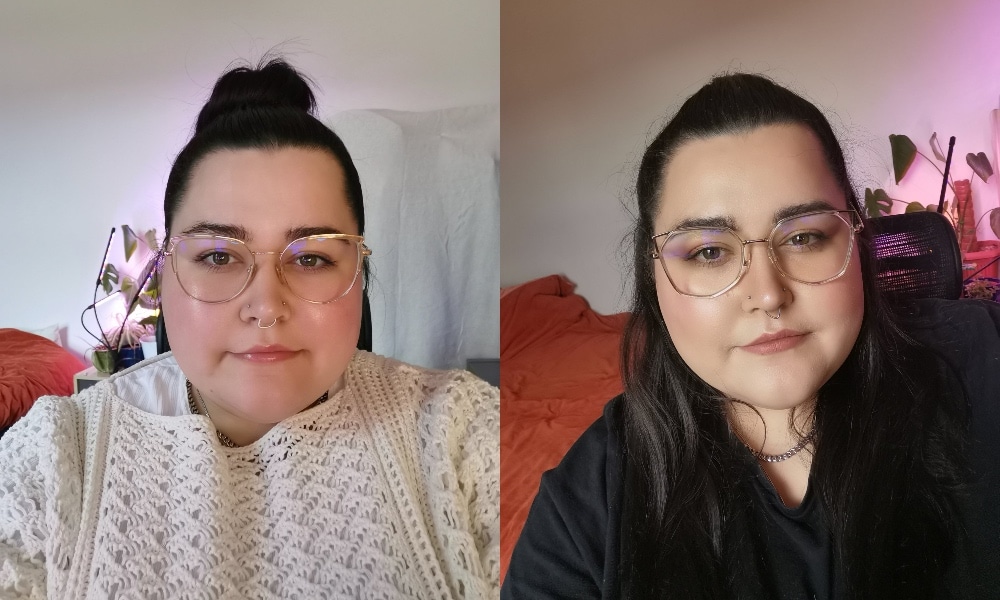LGBTQ+ and lonely: How isolation and loneliness can be debilitating – and how they can be overcome

For LGBTQ+ people, loneliness is an all-too common emotion that can be gnawing. (Stock photograph via Getty Images)
For many, loneliness is a simply reminder of the things we’re missing out on. But when experienced for too long, it becomes a quiet, aching feeling of being alone against your will.
According to the Office for National Statistics, almost one in 14 Brits say they are lonely, a figure that increased during the coronavirus pandemic.
Research shows it’s an issue that impacts the LGBTQ+ community more acutely – before the pandemic, 21 per cent of queer people felt loneliness “very often” or daily, according to LGBT HERO’s LGBTQ+ Lockdown Wellbeing Report. During the lockdown, this more than doubled.
Partly this is because LGBTQ+ people are a minority, meaning we often have to look further to find peers.
“There are literally fewer LGBTQI+ people than heterosexual people,” Charlotte Fountaine, co-founder of the queer mental health app Kalda, told PinkNews.
“Finding a partner and finding friends who share your identity is statistically harder, so that can be isolating on a very literal level.”
Coming out can be especially isolating, Fountaine added.
“The journey to understand your identity can be very lonely.
“This rejection can become internalised, so then we’re less likely to seek relationships or trust those around us.”
Lockdown left many ‘disconnected’
The pandemic left many feeling more isolated than ever before.
Among them was Ibtisam Ahmed, head of policy and research at the LGBT Foundation.
The 30-year-old lived in Nottingham during the first lockdown with his partner. As a queer person of colour and a migrant, Ahmed felt despondent as he became “disconnected from others who understand” his struggles.
“I lost a huge safety net by no longer being able to see friends and loved ones with my lived experience, which was compounded by growing stress in how the pandemic was also creating ill-will towards people of colour,” he told PinkNews.
“I am a QTIPoC migrant while my partner is white British, and there are some experiences that the two of us are unable to fully explain to each other.”
Ahmed slipped into solitude during lockdown. Soon even a trip to the local pharmacy to pick up medication felt too risky. “I became scared to go out because I noticed an uptick in racism,” he said
William Roney, an out of work 25-year-old living in Manchester, said feeling lonely is a “cycle” for him at this point.
“As LGBTQ+ people, we are still marginalised, still sidelined and that means that all of us, from a very young age, know what it is like to feel lonely and to feel like it’s us against the world,” he explained.
Marginalisation is something Blake Lewis, a 44-year-old paralegal based in Rotherham, feels every time he attends a medical appointment, or when a caregiver comes around his house.

Blake Lewis. (Supplied)
A pansexual trans male, Lewis is physically disabled and blind, and relies on caregivers and family for day-to-day support.
“Having manual dexterity issues in my upper arms I need support to put my binder on and due to dysphoria, I’m unable to wash my personal parts,” he said, adding that caregivers often ask him invasive questions about his genitals as well as his deadname.
When it comes to his hormone therapy, which he has taken since 2018, Lewis said: “Every piece of written information comes in print, which they either expected my mum, who was and still is, going on her own journey with this, or a carer who kept misgendering me to sit and read the information to me.”
Loneliness can have dangerous knock-on effects
Like any form of stress, loneliness can impact our health.
Researchers have associated being lonely with higher rates of mortality, physical ailments, depression and cognitive decline. Even basic tasks like bathing or preparing food can become more difficult.
Ashleigh, a 25-year-old demi-pansexual university student who lives with borderline personality disorder (BPD), often feels unable to “human” because of her lack of meaningful companionship, something she says is “amplified” by her BPD.
Ashleigh was forced to move in with her parents in the far-flung Scottish Highlands after a work colleague filmed her showering without her consent.
She was unable to tell anyone about what happened amid a court case about the incident, feeling deeply isolated as she carried her trauma alone.
Within months of the incident, her health nosedived and she was left homeless after her partner abused her.

Ashleigh. (Supplied)
For a time, Ashleigh’s local home treatment team, which offers mental health support for those in crisis, “came over once a week to ensure I was still alive” as she felt unable to leave her bed.
“I had to start again and find people and places to connect,” she explained.
“Because I have BPD, it amplifies everything. When I feel lonely, I feel like that’s it. This is my life. I’m going to stay in this little pit of depression.
“It’s the same thing over and over again.”
Loneliness has “subcategories”, Ashleigh said, and there are many ways to experience it. It can mean both not having any human contact for a period to having a “horrible pit in your stomach constantly”, even if you’re in a room full of people.
Roney lost his mother in 2018, and since then has “often felt lonely in grief”. As he became someone “perpetually in pain”, drugs and alcohol became ways to cope.

William Roney. (Supplied)
“Grief is a very personal thing,” he said. “It affects every person who experiences it in different ways and leads to one feeling lonely, one wondering: ‘Why can’t anyone understand what I am going through.’
“But that loneliness impacted my mental health in a way that drove me to alcohol and drugs.”
Over time, Roney’s friends began to distance themselves from him and he ended up jobless. “This exacerbated my loneliness and made me feel more isolated and alone because I felt I was losing people close to me through my own actions,” he said.
As much as loneliness can linger, connections can still be made – even online
As people emerge out of loneliness, the feelings of disconnect can linger – though there are ways to ease it.
Even after lockdown, Ahmed is still sometimes stunted by loneliness. There is a sense of loss for the human connection he missed out on over two years of the pandemic, he said, and as he starts socialising again, he is often left feeling drained.
“Coming out of lockdown was a huge relief because it has allowed me to reconnect with a community I feel like I almost lost,” he said.
“But I still feel extra conscious of myself in a way I didn’t before going into isolation.”
For Ashleigh, discussing her loneliness on social media, joining groups online and attending local LGBTQ+ meet-ups has helped her as she starts anew in Scotland.
At first, she struggled to use the word lonely because she felt embarrassed. But as she pushes forward, she is reminded that loneliness isn’t something she should feel ashamed of.
“If more people talk about it, it would create more awareness that this exists,” she said. “There’s not enough understanding that anyone can become lonely.”

